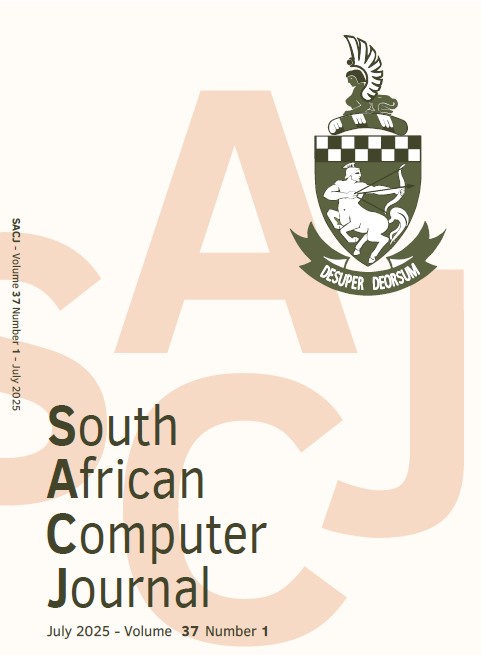Contextualising Design
Aligning digital sharing economy platforms with local SMEs’ sharing practices in resource-constrained countries
DOI:
https://doi.org/10.18489/sacjv37i1/18435Keywords:
Digital Sharing Platforms, Contextualizing Design, Activity Theory, SMEs, Local Sharing Practices, Information System DesignAbstract
This paper addresses the challenge of designing digital sharing platforms that align with the local sharing practices of SMEs in resource-constrained countries, with a specific focus on Ethiopian SMEs. The research utilises the elaborated action design research (EADR) methodology and begins with the diagnosis stage, employing thematic analysis with activity theory (AT) to gain an understanding of the local sharing practices. Results revealed elements such as activities, stakeholders, motives, resources, goals, actions, rules, and tools that inform the design requirements of the digital sharing platform. Building on the diagnosis stage, the design cycle established key principles and the architecture of 13 local sharing models that form the features of the platform. In the implementation cycle, the paper presented a specific instance of a “property rental package.” Results indicated the positive acceptance of the digital platform. Factors such as technological compatibility, perceived direct benefit, ease of use, and perceived indirect benefit contributed to this acceptance. The study contributes to the existing literature by providing valuable insights on how to contextualise the design of digital platforms in the local sharing practice contexts. Additionally, it showcases the effective utilisation of the EADR methodology and activity theory.
Downloads
Published
Issue
Section
License
Copyright (c) 2025 Sertse Abebe, Hossana Twinomurinzi

This work is licensed under a Creative Commons Attribution-NonCommercial 4.0 International License.





.png)